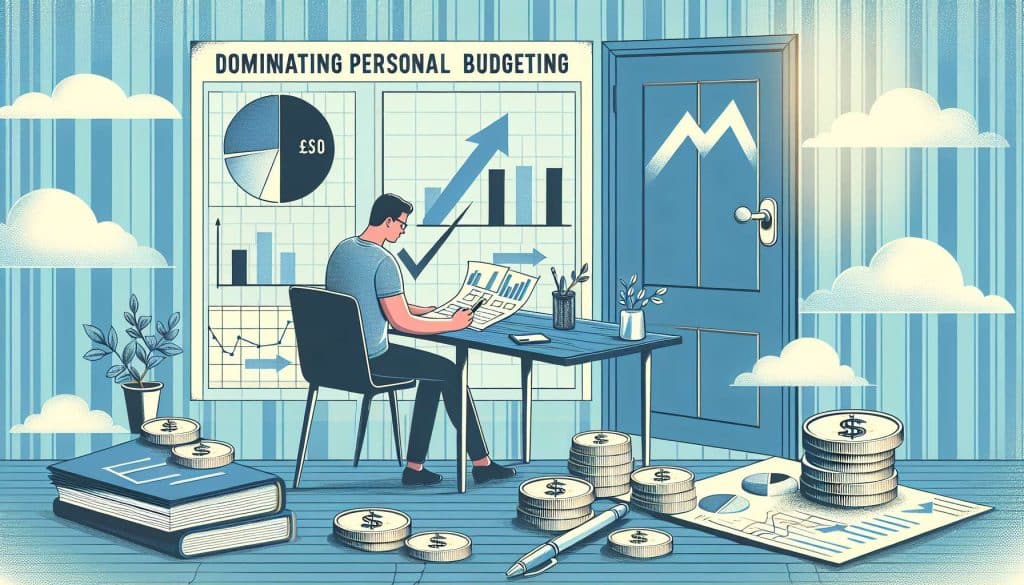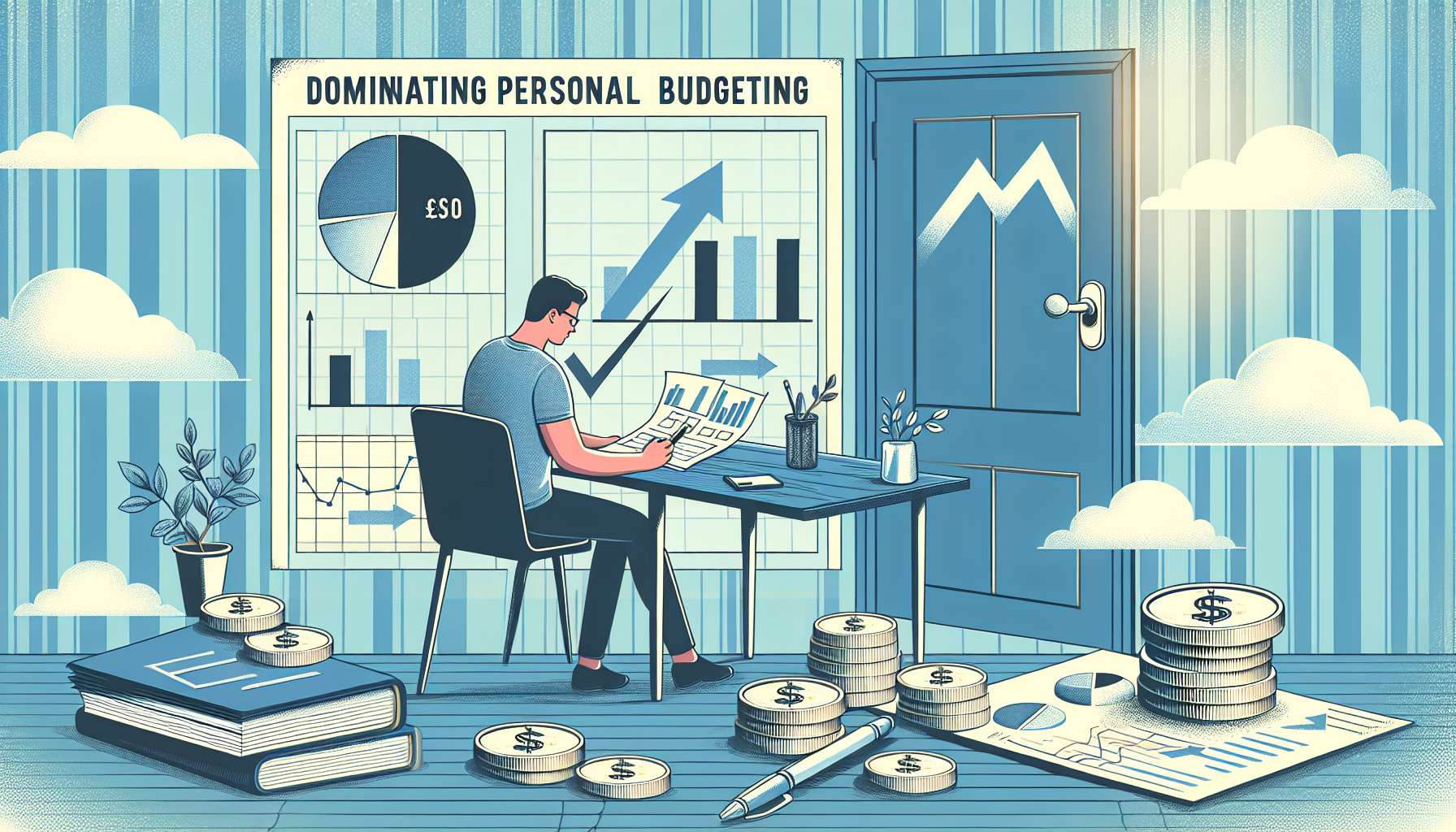Master Personal Budgeting to Achieve Financial Freedom


Mastering Personal Budgeting: Your Guide to Financial Freedom
Achieving financial freedom is a common goal in today’s world, where economic challenges abound. For many, financial stability seems elusive amidst rising costs and unpredictable economic conditions. Fortunately, personal budgeting offers a pathway to navigate these complexities. By effectively managing your finances, you can achieve stability and build toward financial independence. This article provides insights and strategies to help you start your journey to financial mastery.
Anúncios
Understanding the importance of personal budgeting is a critical step toward financial empowerment. Essentially, budgeting involves creating a plan for spending your money to ensure you can meet your needs and pursue your desires. It brings balance to your financial life, allowing you to align your income and expenses while gaining control over your future. Recognizing the importance of this process can transform your financial outlook.
Budgeting is not merely a tool; it’s a necessity for reaching your financial goals. With a well-structured budget, you minimize the risk of accumulating debt, enhance your savings capacity, and prepare for unforeseen financial needs. Furthermore, budgeting offers valuable insights into your spending patterns, revealing areas where cost-cutting could lead to significant savings. Embrace budgeting as a stepping stone to achieving the financial future you envision.
Creating an effective personal budget begins with identifying your income sources. Consider all revenue streams, including your primary job, side gigs, and rental income, to delineate a realistic portrait of your financial situation. A clear understanding of your earnings establishes the groundwork for a purposeful budget.
Next, maintaining a record of your expenses is essential. Begin by categorizing them into fixed expenses, such as rent and insurance, and variable expenses, like groceries and entertainment. Use past bills and bank statements to assess your typical monthly expenditures, ensuring a comprehensive awareness of where your money goes.
With income and expenses defined, setting financial goals becomes more accessible. Determine what you hope to accomplish, whether paying off debt, saving for a significant purchase, or building an emergency fund. These goals provide the motivation needed to adhere to your budget.
The subsequent step entails meticulously planning your budget. By subtracting expenses from income, allocate funds for essential needs, savings, and debt repayment, following the 50/30/20 rule. This division ensures a balanced financial plan where needs take precedence, followed by wants and savings.
Your budget isn’t meant to be static. Life changes necessitate flexibility. Regularly monitor your spending to ensure adherence, making adjustments when necessary. Remember, a budget is a guide, not a restriction, providing room for adaptability depending on your circumstances.
Overview of Personal Budgeting’s Role
Personal budgeting essentially empowers individuals to take charge of their financial futures. Amid financial turmoil or stability, budgeting serves as a roadmap to navigate economic demands, plan for long-term goals, and manage day-to-day expenses efficiently. It enables financial literacy, encouraging informed decisions and fostering security. Moreover, by understanding and implementing a budget, individuals build resilience, ready to adapt to various life changes.
Avoiding common budgeting mistakes is crucial to sustaining a successful financial plan. One prevalent mistake is neglecting to account for irregular expenses like annual subscriptions or car repairs. Allocate funds monthly for these to avoid sudden budget shocks. Regularly reviewing your budget is also imperative; without periodic checks, spending may quickly exceed income, leading to financial instability.
Features and Relevant Considerations
Personal budgeting involves various characteristics and considerations, including:
- Creating respective categories for fixed and variable expenses.
- Setting realistic, attainable financial goals for motivation.
- Flexibility to adapt budget plans as life circumstances evolve.
- Using budgeting tools/apps for simpler expense tracking.
- Involving family members in the budgeting process for collective benefit.
Benefits of Effective Personal Budgeting
Mastering personal budgeting reaps numerous benefits, offering security and possibility where financial stress once dominated. By adopting practical budgeting habits, individuals experience increased savings, reduced debt, and enhanced financial resilience. Effectively maintaining a budget allows for both short- and long-term financial planning to coexist harmoniously, nurturing a life of stability and fulfillment.
Through effective budget management, individuals gain financial autonomy. Proactively managing finances allows for intentionality, encouraging judicious spending while minimizing the risk of debt accumulation. Moreover, consistent budgeting augments savings capabilities, providing a cushion for potential emergencies or significant investment opportunities, fostering financial security.
Enhancing your financial literacy is another benefit, as understanding your budget empowers wise decision-making. By tracking income and expenses, you cultivate awareness, promoting informed financial dealings. Additionally, sticking to budget constraints strengthens personal discipline, a skill translatable to other life areas.
Beyond personal benefits, effective budgeting positively influences relationships involving shared finances. Ensuring alignment on financial goals and transparency in spending mitigates conflicts, promoting healthy discourse and cooperation among family members or partners. Budgeting, in this context, acts as a foundation for collective financial well-being.
Furthermore, personal budgeting encourages goal-oriented behavior. Financial goals, such as purchasing a home or securing retirement funds, appear attainable with a solid budget plan in place. This perspective shift fosters optimism and inspires proactive investment in one’s future, transcending day-to-day expenditures.
Conclusion
Committing to personal budgeting can transform your financial existence, paving the way to independence and peace of mind. By understanding your income, strategizing expenses, and setting clear objectives, you avoid typical budgeting pitfalls, ensuring financial security. Consistency remains crucial; adapting to life’s changes while maintaining discipline guides you toward financial freedom. Embrace these budgeting practices to unlock financial potential and conquer anxiety associated with monetary constraints.





